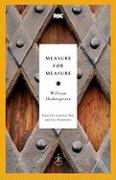Read more
Informationen zum Autor William Shakespeare was born in Stratford-upon-Avon in April 1564, and his birth is traditionally celebrated on April 23. The facts of his life, known from surviving documents, are sparse. He was one of eight children born to John Shakespeare, a merchant of some standing in his community. William probably went to the King's New School in Stratford, but he had no university education. In November 1582, at the age of eighteen, he married Anne Hathaway, eight years his senior, who was pregnant with their first child, Susanna. She was born on May 26, 1583. Twins, a boy, Hamnet ( who would die at age eleven), and a girl, Judith, were born in 1585. By 1592 Shakespeare had gone to London working as an actor and already known as a playwright. A rival dramatist, Robert Greene, referred to him as "an upstart crow, beautified with our feathers." Shakespeare became a principal shareholder and playwright of the successful acting troupe, the Lord Chamberlain's Men (later under James I, called the King' s Men). In 1599 the Lord Chamberlain's Men built and occupied the Globe Theater in Southwark near the Thames River. Here many of Shakespeare's plays were performed by the most famous actors of his time, including Richard Burbage, Will Kempe, and Robert Armin. In addition to his 37 plays, Shakespeare had a hand in others, including Sir Thomas More and The Two Noble Kinsmen , and he wrote poems, including Venus and Adonis and The Rape of Lucrece . His 154 sonnets were published, probably without his authorization, in 1609. In 1611 or 1612 he gave up his lodgings in London and devoted more and more time to retirement in Stratford, though he continued writing such plays as The Tempest and Henry VII until about 1613. He died on April 23 1616, and was buried in Holy Trinity Church, Stratford. No collected edition of his plays was published during his life-time, but in 1623 two members of his acting company, John Heminges and Henry Condell, put together the great collection now called the First Folio. Klappentext "The version of Measure For Measure and the corresponding footnotes that appear in this volume were originally published in William Shakespeare: Complete Works! edited by Jonathan Bate and Eric Rasmussen! published in 2007 by Modern Library"--T.p. verso. Act 1 Scene 1 running scene 1 Enter Duke, Escalus, Lords [and Attendants] DUKE Escalus. ESCALUS My lord. DUKE Of government the properties to unfold Would seem in me t´affect speech and discourse, Since I am put to know that your own science Exceeds, in that, the lists of all advice My strength can give you. Then no more remains But that to your sufficiency as your worth is able, And let them work. The nature of our people, Our city´s institutions, and the terms For common justice, you´re as pregnant in As art and practice hath enrichèd any That we remember. There is our commission, Hands him a paper From which we would not have you warp. Call hither, I say, bid come before us Angelo. [Exit an Attendant] What figure of us think you he will bear? For you must know, we have with special soul Elected him our absence to supply; Lent him our terror, dressed him with our love, And given his deputation all the organs Of our own power. What think you of it? ESCALUS If any in Vienna be of worth To undergo such ample grace and honour, It is Lord Angelo. DUKE Look where he comes. Enter Angelo ANGELO Always obedient to your grace´s will, I come to know your pleasure. DUKE Angelo, There is a kind of character in thy life That to th´observer doth thy history Fully unfold. Thyself and thy belongings Are not thine own so proper as to waste Thyself upon thy virtues...

